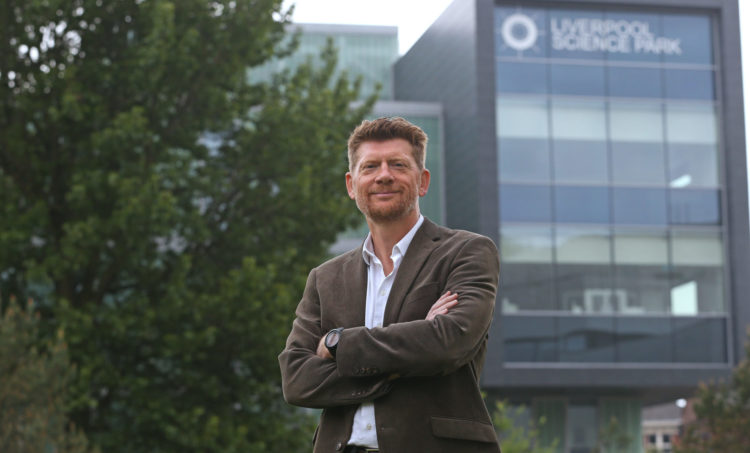UK Innovation Districts Group and consulting and engineering firm Arup release publish report which says investment into such areas should be prioritised by Government. Tony McDonough reports

Innovation districts such as Liverpool’s £2bn Knowledge Quarter (KQ Liverpool) are “critical” to the delivery of the UK’s Industrial Strategy and should be prioritised when it comes to investment.
That’s the conclusion of a new report, UK Innovation Districts and Knowledge Quarters – Driving More Productive Growth, which urges the Government to channel investment into innovation districts which have the potential to “accelerate productivity growth in the UK”.
The UK Innovation Districts Group (IDG) and consulting and engineering firm, Arup, have released the study outlining the importance of these centres to the UK economy. The IDG was established in October 2017 and represents six major innovation districts across the UK – in Glasgow, Leeds, Liverpool, London and Manchester.
Work begins on £35m Royal College of Physicians HQ – click to read more
Investment into innovation districts, it says, will support more inclusive growth by prioritising diversity, education, skills and social networks to create fair and thriving local economies.
Inclusive growth
Colin Sinclair, chief executive of Knowledge Quarter Liverpool, said: “In a world post-Brexit, the UK will rely on its intellectual property, its people and their productivity more than ever.
“Placemaking is a much-used phrase, but it matters. If we are to improve people’s lives, by creating genuinely inclusive growth, we need to start by improving their health outcomes, improving housing stock, building world-leading science and tech facilities, with great connectivity, and most important of all investing in people through education and training.”
Urban areas
Innovation districts are urban areas with networks of knowledge producing organisations such as universities, research bodies, teaching hospitals, cultural institutions and knowledge intensive businesses. They bring together innovators, entrepreneurs, researchers, creatives, knowledge workers and investors to collaborate, compare and compete, creating the conditions for business growth.
Liverpool’s Knowledge Quarter is one of five Mayoral Development Zones in Liverpool, established as part of its ‘City Deal’ regional devolution agreement with central government. At its heart is the £1bn Paddington Village development.
As well as the city council, partners include Liverpool John Moores University, the University of Liverpool, Liverpool School of Tropical Medicine and the new Royal Liverpool University Hospital.

London launch
The report, which marks the first collaborative project for the UK Innovation Districts Group, is launched on Monday at an event at Arup’s London office, chaired by Professor Michael Parkinson from the University of Liverpool.
It looks at the progress made by its districts so far: factors for success, issues to be overcome and the priorities and opportunities for the future. Based on these findings, it sets out a series of recommendations for national and local Government, promoters and institutions including:
- Government and cities and city regions should prioritise investment in innovation districts to support the delivery of the Industrial Strategy
- Innovation districts should build on their existing work to help lead the way in increasing productivity through inclusive growth
- Innovation districts should work together more closely as a national network
- Cities, city regions and innovation districts should continue to secure capital investment in public spaces, physical and digital infrastructure, and new buildings in innovation districts
- Government, LEPs and Combined Authorities and cities should invest in developing the hard and soft networks to support business growth in innovation districts
Tom Bridges, director at Arup, added: “This report shows that innovation districts are emerging as new urban districts that can help UK cities create, scale up and attract fast-growing firms which will drive more productive and inclusive economic growth. In the context of the UK’s sluggish productivity growth, government and cities should prioritise investment in innovation districts as part of a place-based approach to delivering the industrial strategy.”

